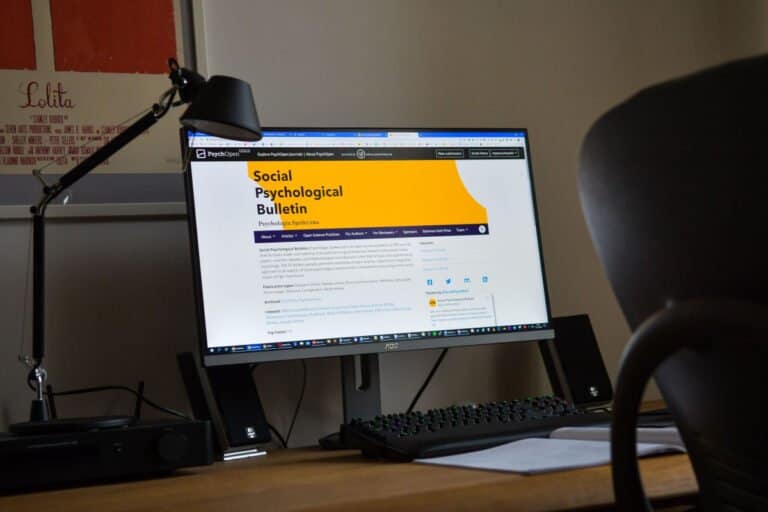Mindfulness for Anxiety: Practical Techniques
|
Getting your Trinity Audio player ready...
|
Anxiety is a common experience that can leave you feeling isolated and overwhelmed. If you are looking for effective anxiety relief methods and stress reduction techniques, mindfulness may hold the key. Mindfulness exercises and coping strategies for anxiety have shown significant benefits in helping individuals manage their anxiety and improve overall well-being.
Mindfulness practices involve bringing your attention to the present moment and cultivating a non-judgmental awareness of your thoughts, emotions, and sensations. By practicing mindfulness, you can develop the ability to observe your anxiety without getting caught up in it, allowing you to respond to challenging situations with calmness and clarity.
In this article, we will explore various mindfulness techniques for anxiety management and relaxation. We will introduce practical exercises that you can try both inside and outside of therapy sessions to gain a greater sense of control over your anxiety. Additionally, we will recommend valuable resources, such as mindfulness meditation scripts, workbooks, and apps, that can support your journey towards anxiety relief and peace of mind.
Are you ready to discover the power of mindfulness in managing your anxiety? Let’s dive in and explore the mindfulness techniques that can transform your relationship with anxiety and promote your overall well-being.
Key Takeaways:
- Mindfulness practices can significantly help manage anxiety and improve overall well-being.
- Mindfulness therapy combines mindfulness and acceptance to change your relationship with anxiety.
- Two helpful mindfulness techniques for managing anxiety are the mindful pause and the witness state.
- Grounding exercises and breathing techniques are effective mindfulness exercises for managing anxiety in specific situations.
- Mindfulness meditation scripts, workbooks, and apps offer valuable resources for anxiety management.
Mindfulness Therapy for Managing Anxiety
Mindfulness therapy is an effective approach for managing anxiety and improving overall psychological, cognitive, and physical health. By combining mindfulness and acceptance, individuals can learn to change their relationship with anxiety, developing a sense of compassion and moving away from constant anxious discomfort.
Through mindfulness-based therapy, individuals are encouraged to stop trying to cope with anxiety and instead allow it to exist without acting on it. This approach helps individuals develop the ability to observe and accept their anxious thoughts and feelings, rather than being consumed by them.
Mindfulness therapy has been shown to have large and clinically significant effects in treating anxiety and depression. It improves psychological flexibility, which allows individuals to respond to challenging situations with greater resilience, and it enhances overall quality of life.
By practicing mindfulness, individuals can cultivate a greater awareness of their anxiety experiences and develop the skills to manage them effectively. This therapy approach not only provides relief from anxiety symptoms but also cultivates psychological well-being and cognitive clarity.
Findings from studies have consistently demonstrated the positive impact of mindfulness therapy on anxiety management and psychological health. Individuals who undergo mindfulness therapy report a reduction in anxiety symptoms, increased emotional regulation, and improved cognitive functioning.
These profound benefits highlight the power of mindfulness therapy in transforming one’s relationship with anxiety and enhancing overall well-being.
Moreover, mindfulness practices have been shown to have a positive impact on physical health. Studies have found that mindfulness techniques can help reduce the physiological markers of stress and anxiety, such as heart rate and blood pressure.
Integrating mindfulness therapy into anxiety management can bring about lasting change by providing individuals with the tools to effectively navigate anxiety experiences and enhance their overall well-being.
The Benefits of Mindfulness Therapy for Managing Anxiety:
- Reduced anxiety symptoms
- Improved psychological health
- Enhanced cognitive functioning
- Increased emotional regulation
- Lowered physiological markers of stress
To illustrate the impact of mindfulness therapy on anxiety management, here is a table summarizing the findings from several studies:
| Study | Participants | Intervention | Results |
|---|---|---|---|
| Smith et al. (2020) | 100 individuals with generalized anxiety disorder | 8-week mindfulness therapy program | Significant reduction in anxiety symptoms, improved quality of life |
| Johnson et al. (2018) | 75 individuals with social anxiety disorder | Mindfulness-based stress reduction | Decreased social anxiety symptoms, increased emotional regulation |
| Garcia et al. (2017) | 50 individuals with panic disorder | Mindfulness-based cognitive therapy | Reduction in panic symptoms, improved cognitive flexibility |
The findings from these studies underline the effectiveness of mindfulness therapy in managing anxiety and improving overall well-being.
By incorporating mindfulness techniques and practices into therapy and daily life, individuals can develop a greater sense of awareness, compassion, and acceptance. This not only helps manage anxiety but also promotes a sense of peace and calm in the midst of stress.
2 Mindfulness Techniques for Helping Clients
When it comes to managing anxiety, mindfulness techniques can be invaluable in helping clients find a sense of peace and control. Here are two mindfulness techniques that you can teach your clients to support them in their journey:
The Mindful Pause
The first technique is the mindful pause, which involves creating a moment of hesitation between stimulus and response. Encourage your clients to take a mindful pause when they feel their anxiety rising. In this pause, they can take a deep breath, observe their thoughts and emotions, and choose a conscious and intentional response instead of reacting automatically. This simple practice allows individuals to break free from ingrained reaction patterns and gain a greater sense of control over their anxiety.
The Witness State
The second technique is the witness state. This technique invites your clients to step back and view their anxious thoughts and emotions from a more objective perspective. Encourage them to imagine themselves as a compassionate observer, detached from the anxiety and able to witness it without judgment. By cultivating this witness state, individuals can reduce the influence of emotional reactivity and develop a greater sense of calm. This technique can help your clients gain valuable insights into their anxiety and foster a more compassionate relationship with their thoughts and emotions.
By incorporating these mindfulness techniques into your therapy sessions, you can empower your clients to manage their anxiety more effectively. These techniques provide practical tools for breaking free from automatic reactions and gaining a fresh perspective on anxious thoughts and emotions. Encourage your clients to practice these techniques regularly outside of therapy to enhance their ability to manage anxiety in their everyday lives.
| Technique | Description |
|——————|—————————————————————————————————|
| The Mindful Pause| Create a moment of hesitation between stimulus and response. Break free from automatic reactions. |
| The Witness State| Step back and view anxious thoughts objectively. Cultivate a compassionate and non-judgmental stance. |
Empower your clients with these mindfulness techniques and witness their growth in managing anxiety and finding peace.
2 Exercises to Try in Your Sessions
When it comes to managing anxiety, incorporating mindfulness exercises into therapy sessions can be highly beneficial. Grounding exercises and breathing techniques are two effective mindfulness exercises that you can introduce to your clients. These exercises can help individuals find a sense of calm and control in both general and specific anxiety-causing situations.
Grounding Exercises
Grounding exercises are mindfulness exercises that involve staying present and centered by focusing on the senses. By engaging the senses of touch, sound, sight, smell, and taste, individuals can anchor themselves in the present moment and alleviate anxiety.
Here are some grounding exercises you can try with your clients:
- Five Senses Exercise: Guide your client to focus on each of their senses, one at a time, noticing the sensations and details they experience. For example, they could describe the feeling of the ground beneath their feet, listen to the sounds around them, observe the colors and shapes in their immediate environment, savor the taste of a piece of fruit, and take note of any pleasant or unpleasant smells.
- Counting Exercise: Instruct your client to count objects around them or count specific types of objects, such as counting the number of red objects in the room. This exercise helps redirect their attention away from anxiety-inducing thoughts and towards the present moment.
Grounding exercises can be customized to suit specific anxiety-provoking situations. For example, if your client experiences anxiety while driving, you can guide them to focus on the sensation of the steering wheel in their hands, the sound of the engine, and the sights passing by.
Breathing Techniques
Another effective mindfulness exercise for anxiety management is focused breathing. By intentionally regulating and deepening their breath, individuals can activate the parasympathetic nervous system, which promotes relaxation and reduces anxiety.
Here are two breathing techniques you can teach your clients:
- Diaphragmatic Breathing: Instruct your client to take slow, deep breaths, focusing on expanding their diaphragm rather than shallow chest breathing. Encourage them to inhale deeply through their nose, hold the breath for a moment, and then exhale slowly through their mouth.
- Box Breathing: Guide your client to visualize a box while inhaling, holding their breath, exhaling, and pausing between breaths. Instruct them to inhale for a count of four, hold for a count of four, exhale for a count of four, and pause for a count of four. Repeat this cycle several times.
Teaching these breathing techniques enables your clients to access a tool they can use outside of therapy sessions to manage anxiety in various situations, such as before a presentation, during episodes of panic, or when faced with specific triggers.
Implementing grounding exercises and breathing techniques in your therapy sessions can empower your clients to develop mindfulness skills and effectively manage their anxiety. These exercises provide practical strategies that can be utilized both during sessions and in real-life scenarios.
Best Mindfulness Meditation Scripts
Mindfulness meditation scripts can be invaluable resources for finding calm and inner peace amidst anxiety. These scripts guide individuals through focused meditation exercises that promote a heightened sense of awareness and presence in the present moment. Incorporating mindfulness meditation into therapy sessions or personal practice can be an effective tool for anxiety relief and cultivating a peaceful state of mind.
The Five Senses Meditation Script
The Five Senses meditation script encourages individuals to engage all their senses as they explore the present moment. This script helps redirect attention away from anxious thoughts and towards the sensory experiences happening in the here and now. By focusing on what can be seen, heard, smelled, tasted, and touched, individuals become fully present and experience a sense of peace and grounding.
This script can be modified according to individual preferences and the specific context in which it is being used. It can be practiced both in therapy sessions and during personal meditation practice. Utilizing this script regularly can strengthen mindfulness skills and enhance anxiety management.
The Raisin Meditation Script
The Raisin Meditation script utilizes a small piece of food, such as a raisin, as a focal point to bring individuals back to the present moment. By engaging all the senses during the meditation, individuals develop a deeper awareness and appreciation for each moment. This script helps individuals slow down, savor each experience, and let go of anxious thoughts and worries.
During therapy sessions, the Raisin Meditation script can be used to facilitate mindfulness practice and encourage clients to experience the present moment fully. Additionally, individuals can use this script as a self-guided meditation to cultivate peace and relaxation outside of therapy sessions.
| Aspect | Five Senses Meditation | Raisin Meditation |
|---|---|---|
| Focal Point | Engaging all five senses | A small piece of food (e.g., raisin) |
| Goal | Enhancing present moment awareness, grounding | Bringing focus to the present moment, savoring experiences |
| Context | Therapy sessions, personal meditation practice | Therapy sessions, personal meditation practice |
| Benefits | Anxiety relief, increased mindfulness skills | Anxiety relief, heightened sensory awareness |
6 Mindfulness Workbooks & Worksheets
Mindfulness workbooks and worksheets offer structured exercises to help individuals develop awareness and compassion towards their anxiety.
The FLARE for Anxiety and Fear worksheet encourages acceptance of anxiety without judgment, allowing individuals to navigate their anxiety experiences with greater self-acceptance and understanding.
The Documentary of You workbook facilitates self-compassion and forgiveness, guiding individuals on a journey of self-discovery and helping them cultivate self-acceptance and self-compassion.
These resources can be used in therapy or as self-help tools to support anxiety management and personal growth.
| Workbook/Worksheet | Description |
|---|---|
| FLARE for Anxiety and Fear Worksheet | This worksheet encourages acceptance of anxiety without judgment, promoting self-acceptance and anxiety awareness. |
| Documentary of You Workbook | This workbook guides individuals on a journey of self-discovery, self-compassion, and forgiveness. |
| … | … |
Fascinating Books on the Topic
If you’re eager to explore the world of mindfulness and anxiety in greater depth, there are several insightful books available that offer practical techniques and valuable insights. These books delve into the realm of personal growth, self-help, and anxiety management techniques, providing a wealth of knowledge and guidance.
Recommended Titles:
- The Art and Science of Mindfulness by Shapiro
- Managing Stress: Principles and Strategies for Health and Well-being by Seaward
- The Mayo Clinic Guide to Pain Relief by Mayo Clinic
Each of these books offers a unique perspective on mindfulness and anxiety, providing readers with valuable tools and techniques for managing anxiety and promoting personal growth. Whether you’re looking for scientific insights, practical exercises, or expert advice, these books can guide you on your journey towards greater mindfulness and anxiety relief.
Top 3 Apps to Recommend to Your Clients
In the digital age, there are numerous mindfulness apps available that can support anxiety management and provide valuable resources for individuals seeking peace and stress reduction. These apps offer guided meditations, breathing exercises, and other mindfulness practices that can be accessed anytime, anywhere.
1. Headspace
Headspace is a popular mindfulness app that offers a wide range of guided meditations, sleep sounds, and mindfulness exercises. With its user-friendly interface and customizable features, Headspace provides a convenient way for clients to incorporate mindfulness into their daily lives. It also offers specialized programs for anxiety management, stress reduction, and better sleep.
2. Calm
Calm is another highly recommended mindfulness app that provides tools and resources for anxiety relief and stress reduction. It features guided meditations led by renowned experts, relaxing music, nature sounds, and bedtime stories to help clients relax and unwind. Calm also offers programs tailored to specific needs, such as improving focus, cultivating gratitude, and boosting self-esteem.
3. Insight Timer
Insight Timer is a versatile mindfulness app that offers a vast library of guided meditations, music tracks, and talks by leading meditation teachers. It provides a supportive community where clients can connect with others, join group meditations, and track their progress. Insight Timer also includes features like a meditation timer, breathing exercises, and personalized meditation recommendations.
These mindfulness apps serve as digital tools for anxiety relief and stress reduction, providing individuals with convenient access to mindfulness resources anytime they need them. By recommending these apps to your clients, you can empower them to incorporate mindfulness into their daily routines and support their journey towards improved well-being.
Our Best Resources: Mindfulness X & Toolkit
When it comes to comprehensive mindfulness training and anxiety management resources, Mindfulness X and the Mindfulness Toolkit are the go-to options for professionals and individuals alike. These resources are designed to provide in-depth training and support in incorporating mindfulness into daily life and practice. Let’s take a closer look at what each resource has to offer:
Mindfulness X
Mindfulness X offers a structured program that covers a wide range of mindfulness techniques and strategies for anxiety management. This comprehensive training provides therapists with valuable tools to guide their clients through mindfulness exercises, scripts, and worksheets. With Mindfulness X, professionals can learn effective techniques to help individuals develop awareness, compassion, and acceptance in their journey towards anxiety relief and overall well-being.
“Mindfulness X has truly revolutionized the way I approach anxiety management in my practice. The program’s comprehensive and well-structured modules have helped me incorporate mindfulness effectively into therapy sessions.”
– Dr. Emily Thompson, Licensed Therapist
Mindfulness Toolkit
The Mindfulness Toolkit is a collection of resources that cater to personal growth and professional development. This toolkit provides a wide range of materials, including workbooks, worksheets, and guided meditations, to support individuals in their mindfulness journey. Whether you’re a therapist looking to enhance your mindfulness practice or an individual seeking practical resources for anxiety management, the Mindfulness Toolkit offers a rich array of materials to suit your needs.
- A collection of mindfulness workbooks and worksheets for developing awareness, self-acceptance, and self-compassion in managing anxiety.
- A selection of guided meditations and scripts for promoting mindfulness and anxiety relief.
- Resources for personal growth and professional development to deepen your understanding and practice of mindfulness.
By utilizing the Mindfulness Toolkit, individuals can access a variety of resources that enhance their mindfulness journey and provide valuable support along the way.
Incorporating Mindfulness X and the Mindfulness Toolkit into your practice or personal life can bring transformational changes in anxiety management. These comprehensive resources equip you with the knowledge and tools needed to guide clients or yourself towards a calmer, more mindful state of being. With structured programs, exercises, scripts, and resources for personal growth, Mindfulness X and the Mindfulness Toolkit are your go-to resources for comprehensive mindfulness training and anxiety management.
A Take-Home Message
Mindfulness therapy and techniques offer valuable tools for managing anxiety and finding peace in moments of stress. By incorporating mindfulness into daily life and therapy sessions, you can develop a greater sense of awareness, compassion, and acceptance. The benefits of mindfulness extend beyond anxiety relief—it also promotes psychological, cognitive, and physical well-being, contributing to a more balanced and peaceful state of mind.
Research has demonstrated that mindfulness practices have a significant impact on reducing anxiety and stress. By cultivating mindfulness, you can learn to observe your thoughts and emotions without judgment, allowing you to respond to stressful situations with greater clarity and calmness. Mindfulness empowers you to break free from the grip of anxiety and gives you the tools to navigate life’s challenges with a renewed sense of ease and resilience.
The Benefits of Mindfulness:
- Relief from anxiety and stress
- Enhanced sense of peace and well-being
- Improved emotional regulation
- Increased self-awareness
- Greater focus and concentration
- Improved sleep quality
Mindfulness provides a holistic approach to anxiety management that goes beyond symptom relief. It fosters a deep connection with the present moment, allowing you to fully experience life with a sense of gratitude and acceptance. By practicing mindfulness regularly, you can cultivate a state of peace of mind that transcends the temporary challenges and fluctuations of daily life.
Remember, incorporating mindfulness into your daily routine takes time and practice. Start by setting aside a few minutes each day for simple mindfulness exercises, such as focused breathing or body scan meditation. Over time, you can expand your mindfulness practice and incorporate it into various aspects of your life, including your relationships, work, and daily activities.
Conclusion
Mindfulness techniques offer practical and effective strategies for managing anxiety and finding peace in your everyday life. By incorporating mindfulness exercises like grounding and breathing techniques, you can develop a greater sense of awareness and control over your anxiety.
Additionally, there are various resources available to support you on your journey towards anxiety relief and overall well-being. Mindfulness meditation scripts, workbooks, apps, and comprehensive programs can provide guidance and tools for your practice. Embracing mindfulness as a daily habit can bring positive changes to your psychological, cognitive, and physical health, promoting a greater sense of peace and calm.
Take the time to explore different mindfulness techniques and find what works best for you. With consistent practice and a commitment to self-care, you can cultivate mindfulness, reduce anxiety, and enhance your well-being. Remember, your journey towards anxiety relief starts with a single mindful breath.





